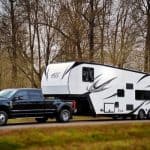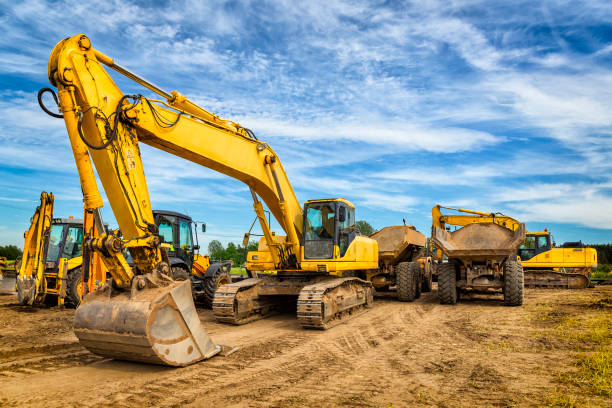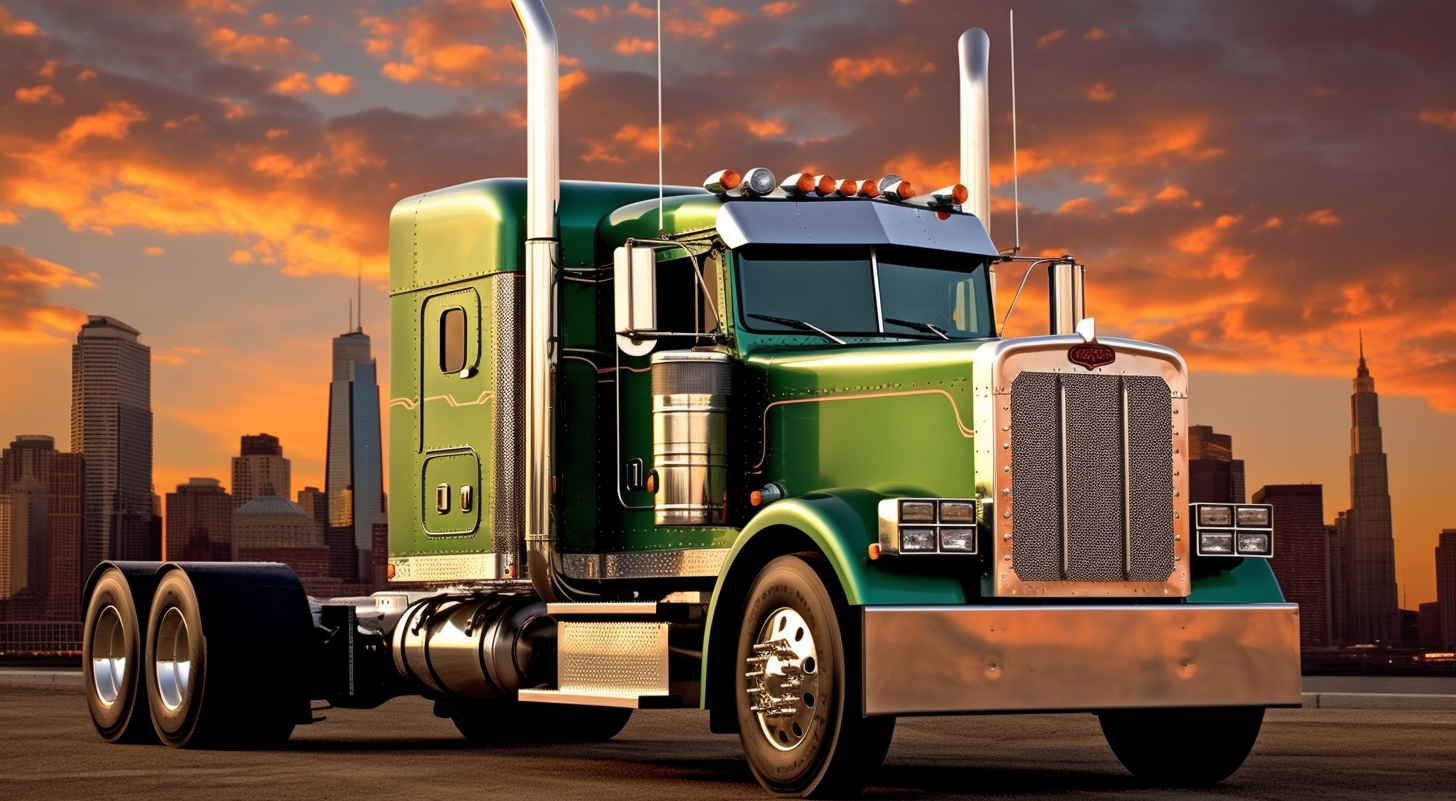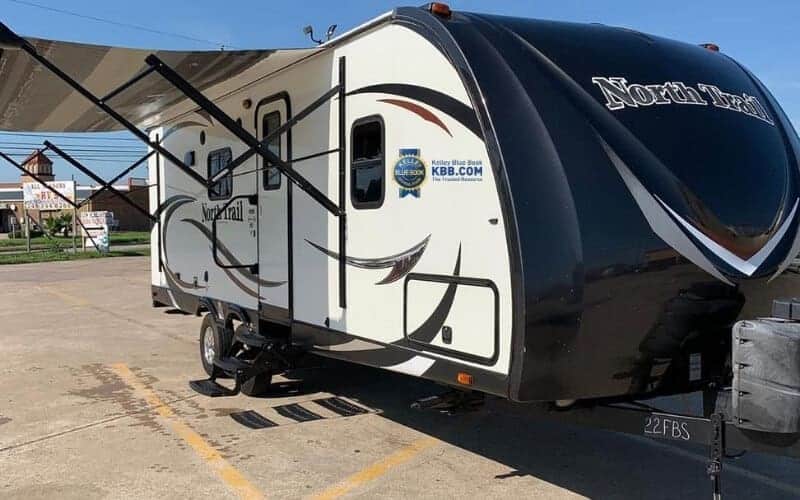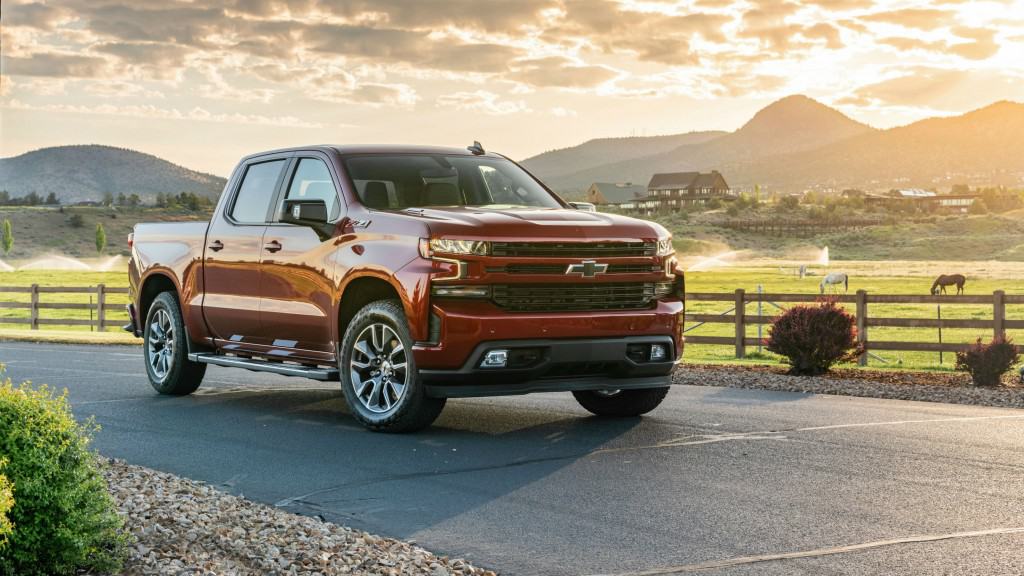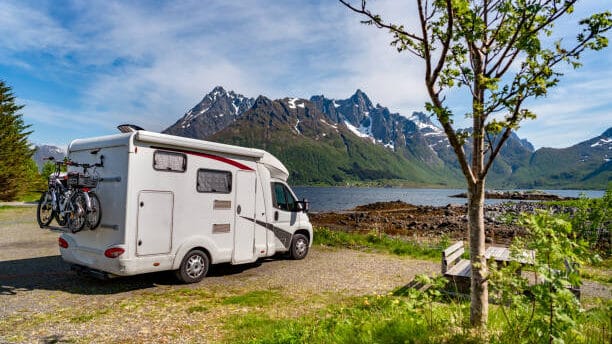
When you’re looking at getting an RV, one of the biggest questions you find yourself asking is, how much does an RV cost? The truth is that most RV’s are incredibly expensive, but they also have a wide range in price depending on what you’re looking for.
Keep reading, and we’ll break down everything you need to know about the RV costs, from a brand-new Class A to a used travel trailer. That way, you can start planning or saving up on your dream vacation vehicle!
Different RV classes
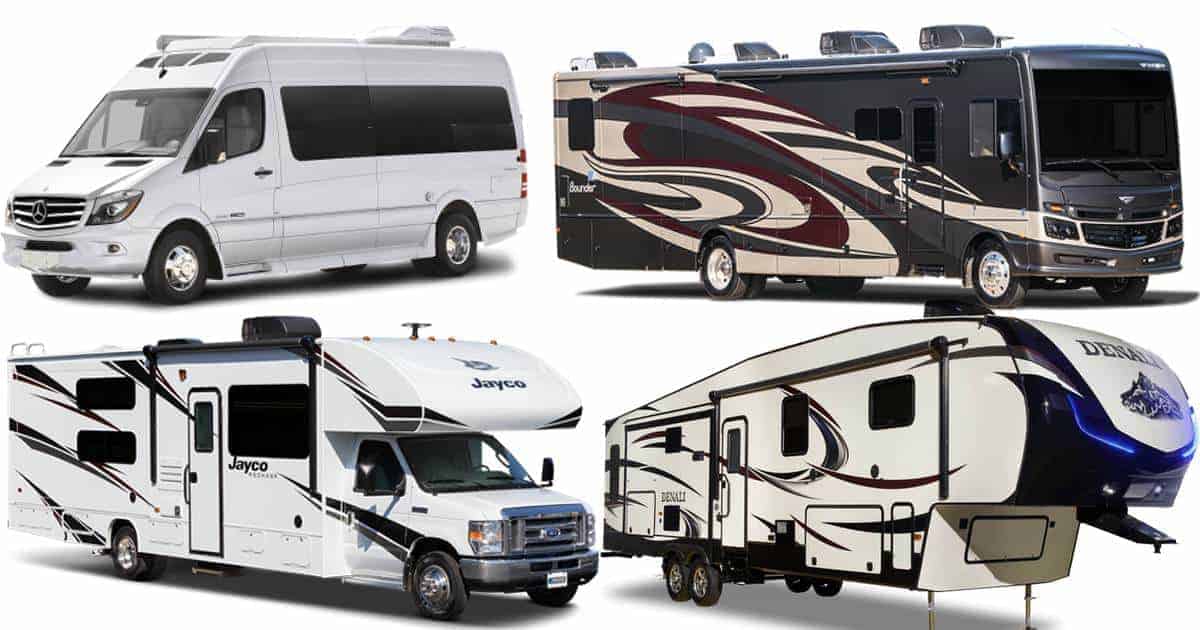
Determining the average price of an RV is impossible without breaking down the different classes of RVs. A Class A RV is significantly more expensive than a Class C, but it doesn’t have near the same level of luxury and comfort.
Class A
Class A RV’s are what you’re typically thinking of when it comes to RV’s that you don’t need to haul. They’re big and luxurious and have everything you could need for a dream vacation vehicle. Of course, all of those fancy features come with a higher price tag as well.
Brand new Class A RV’s start around 50,000 dollars, but some of the more luxurious ones cost over a million dollars. Still, most Class A RVs cost somewhere between 75,000 and 200,000 depending on the size and features.
If you’re willing to buy a used Class A RV, the cost drops to between 35,000 and 150,000, with most of them costing between 50,000 and 100,000. Once again, this is mainly dependent on the size and features, as well as the age and mileage of the RV.
Class A RV’s aren’t cheap, but they offer a ton of convenience with all of the amenities built right in. Another thing you need to consider is the fuel price associated with driving a Class A RV. Most Class A RV’s only get 7 to 13 miles per gallon, which can add up to a ton of money in fuel if you’re making a cross country trip!
Class B
Class B RVs are significantly smaller and less luxurious than Class A RVs. However, they still offer small kitchen areas and bathrooms. Because of their smaller nature, they are typically far cheaper, and they have the added financial benefit that they are far more fuel-efficient.
New Class B RVs typically cost between 40,000 and 80,000 dollars, with the more luxurious ones coming in closer to 200,000 dollars.
Meanwhile, if you’re looking at buying a used Class B RV, you can save a little money as they typically cost 20,000 and 50,000 dollars. However, these prices vary widely depending on the age and condition of the RV.
You’ll be able to find low-end Class B RVs with several hundred thousand miles for around 10,000 dollars. However, people sell the highest-end used Class B RVs for over 150,000.
Like Class A RVs, Class B RVs can be extremely expensive, depending on the package options and luxury level. However, Class B RVs are almost always cheaper if you’re comparing similar styles and features. They are better suited for smaller groups that are OK with being closer together.
Class C
The most significant difference between a Class C RV and a Class B RV is that a Class C RV has a separate driving area. Unlike a Class B where you walk from the living area directly to the driving cabin, Class C motorhomes are distinctly separated.
Class C motorhomes typically have kitchen and bathroom amenities and are significantly smaller than Class A motorhomes. Because of the similarities in style and amenities between Class B and Class C motorhomes, the price is similar too.
New Class C RVs typically cost between 50,000 and 100,000 dollars. However, you can find Class C motorhomes that cost closer to 200,000 dollars if they have top-of-the-line luxury features.
Similar to Class B, RVs used Class C motorhomes to range in price between 30,000 and 75,000 dollars. However, you’ll be able to find Class C motorhomes for less than 20,000 dollars and as much as 175,000 dollars depending on the features and condition of the vehicle.
Pinpointing a specific price on a used or new motorhome can be extremely difficult because of the wide-ranging features and amenities that can drastically change the vehicle’s cost.
Fifth Wheel
Unlike Class A, B, and C motorhomes that we’ve already discussed, you need to tow fifth wheel options from location to location. They are incapable of moving themselves, and as such, you’ll need a pretty heavy-duty truck.
But because fifth-wheel trailers don’t have any engine or driveline components, they are significantly cheaper than all the previously discussed motorhomes.
Most new fifth-wheel trailers cost between 20,000 and 50,000 dollars. Meanwhile, used fifth wheel trailers don’t depreciate in value the same way that motorhomes do. Used fifth-wheel trailers usually cost between 15,000 and 40,000 dollars.
Of course, you’ll be able to find cheaper options if you find fifth-wheel trailers that are extremely old or weren’t properly maintained. Conversely, you’ll be able to find new and used fifth wheel trailers that cost over 80,000 if they have more luxurious options.
While the trailers themselves are cheaper, if you don’t have a truck to haul them, then you’re going to end up spending at least another 20,000 dollars to find a low-end truck with enough power to tow the fifth wheel trailer around.
If you’re looking for a new truck that can haul one of these trailers, then you’re likely going to spend over 65,000 dollars on the truck alone.
Travel Trailers
Travel trailers are significantly smaller than fifth-wheel trailers, and they typically come with substantially smaller price tags. New travel trailers can cost anywhere between 11,000 and 40,000 dollars, but the average price is around 25,000 dollars.
While used travel trailers typically carry a similar price tag to new ones, you generally get more features for less money. They do depreciate, but much like fifth-wheel trailers, they don’t depreciate as quickly as motorhomes do.
Just like fifth-wheel trailers, you’ll need a truck to haul your travel trailer around. However, they don’t need to be nearly as powerful as the trucks required to haul fifth-wheel trailers. As long as you drive a vehicle with enough torque and a pintle hook, you can tow your travel trailer wherever you want to go.
The significantly reduced cost of the vehicle needed to tow your trailer makes travel trailers a far more affordable option than fifth-wheel trailers.
Pop Up Trailers
Pop up trailers are one of the cheapest options available. A new pop up trailer starts around 10,000 dollars and can cost as much as 50,000 dollars for the most luxurious models. However, the latest pop-up trailers cost approximately 15,000 dollars.
However, if you’re looking to buy a used pop-up trailer, you’ll find that most of them cost between 7,500 and 12,500 dollars. Of course, this depends on the trailer’s age and amenities, and it’s not unheard of to see a used pop up trailer that costs close to 40,000 dollars.
To tow them, you’ll need a vehicle with enough power and torque and have an attached pintle hook. Most vehicles are capable of pulling travel trailers as long as you can attach a pintle hook. This makes pop up trailers far more affordable to most people.
Buyer’s Guide
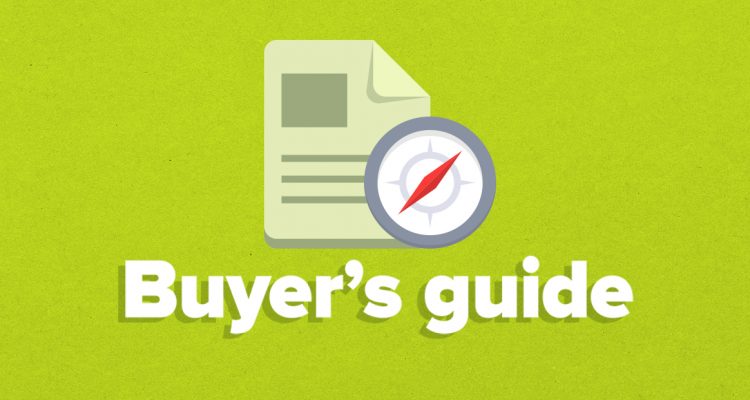
Whether you’re looking to buy a motorhome or a trailer, there are a few things you should know. Once you’ve settled on what you want, you should follow some simple tips and tricks to get the perfect deal.
Think it Over
The first thing is that you should never buy a motorhome or a trailer on a whim. Tons of trailers and motorhomes never make it past their first vacation. You get caught up in the sense of adventure and dream about what you could do – only to never do it after you’ve made the purchase.
If you’ve never traveled with a motorhome or a travel trailer before, try renting before you buy. This will give you a sense of whether or not it’s something you’re interested in doing more often. If you find the experience too stressful or just don’t enjoy it, you’ve saved yourself a ton of money.
However, if you’ve just finished your trip and you’re already planning your next one, then you know it’s a good investment. Furthermore, by renting a motorhome for the first time, you’ll get a better idea of the expenses associated with using one for your trips.
It’s about more than the purchase price, and having a little experience will go a long way in knowing what to expect.
New or Used?
Whether you should get a new or used motorhome depends on two main factors. How picky are you on what you want, and how much are you willing to spend?
If you have a particular layout that you want and have an unlimited budget, then by all means, go out and buy a new one! However, if you’re not overly particular about what you’re looking for, or if money is a significant concern, getting a used motorhome or trailer might be a great way to save a little money or get some features that you otherwise couldn’t afford.
Keep in mind that as soon as you drive your new RV or trailer off the lot, it depreciates in value. While a used motorhome or trailer will lose value over time, the rapid devaluation experienced as soon as it’s purchased is already over.
Know What You Want
Before you go to make an offer on an RV or trailer, do your research. Do you want a gas or diesel motorhome? How much space do you need? If you’re looking at a trailer, what will you be hauling it with?
Don’t let a salesman talk you into something that you don’t want. Take your time and do your research before you get to the dealership. The same advice follows if you’re trying to buy a used RV or trailer. While the person trying to sell you the motorhome or trailer doesn’t have as much experience as the individual at the dealership, they’re a salesperson nonetheless.
Don’t get talked into something that you’ll regret. Do your research beforehand and go in with a plan and wait for the right deal.
Always Get an Inspection on Used RVs and Trailers
If you’re getting a used RV or trailer, always take the time to get an inspection. Nothing’s worse than dropping a ton of money on a vacation vehicle only to find out that you got ripped off after the fact.
Pop trailers and travel trailers might seem like simple pieces of machinery, but they have tons of suspension components that you should have checked out before you ever make a purchase. Please take it to a qualified inspector to make sure that you’re getting a good deal.
Check the Warranty on New RVs and Trailers
If you’re purchasing a new RV or trailer, ask about the manufacturer’s warranty before signing any paperwork. Keep in mind that this is different from the dealership warranty.
Manufacturer warranties are honored everywhere, whereas dealership warranties are only honored at that particular dealership.
Furthermore, the dealerships often fill their warranties with fine print that makes them practically impossible to use and insanely easy to void.
You’re about to spend a ton of money, take the little extra time to read the fine print.
Time Your Purchase
Unlike when you’re going to purchase a car, motorhomes are trailers that are usually more expensive in the Spring. Dealerships and owners both know that most people are looking to travel during the summer. There is a much smaller market for those looking to travel in the Winter.
This makes the Spring the ideal time to sell a motorhome. However, from a buyer’s standpoint, this is the time that you need to avoid. It would be best if you tried purchasing a motorhome or trailer in the Fall. When the dealership is looking to dump their stock to make room for the new inventory, they can try and sell next year.
If you time your purchase right, you can save a few thousand dollars off of your purchase. You might even get lucky and get the dealership to sell you the vehicle for slightly less than they paid for it.
Look Past What You Can See
When you’re purchasing a used motorhome or RV, you should look past the minor cosmetic issues. You can quickly fix these issues after you purchase the vehicle, but they can be used to knock off a significant portion of the price.
If you’re the buyer that’s willing to look past the minor things that you can fix, you’ll likely be able to save a little bit of money.
Don’t Be Afraid to Travel
Just like with cars, some areas are more expensive than others to buy an RV or trailer. You’re looking to buy one because you like to travel anyway, right? Why not make your first trip the trip to pick up your motorhome or trailer?
If it can save you a few thousand bucks and let you visit a new area, it’s a win-win, right? Even better, you’ll get a chance to try out your new RV or trailer on the way back home!
If you plan to travel to purchase your RV or trailer, make sure that you have several options available before heading out. This is especially true if you plan on buying a used one that you haven’t seen in person yet.
You don’t want to get out there and feel like you need to buy a motorhome or trailer that isn’t what you thought it would be!
Compare Prices
While Kelley Blue Book doesn’t have a feature to let you get a fair market value on a motorhome or trailer, that doesn’t mean you’re on your own to figure out if you’re getting a good deal or not.
NADAGuides.com and RVtrader.com are two great tools that you can use to find similarly priced RVs to determine if you’re getting a good deal or not. Take the time to research the RV or trailer you’re looking to buy, that way, you’re not left wondering if you just got the deal of a lifetime or completely ripped off.
Seller’s Guide

While it’s the buyer’s job to try and get their new motorhome or trailer for as little as possible, if you’re trying to sell one, you want to make as much money as possible from it. If you’re looking to move your RV or trailer, there are a few tips and tricks you can use to get as much as possible!
Time the Sale
While you want to buy a new RV or trailer in the Fall or Winter, if you’re looking to sell your old one, you want to move it in the Spring. That’s when all the new campers are looking to purchase their first motorhome or trailer, and it’s when you’ll have the largest potential number of buyers.
Of course, all this drives up the price, letting you maximize your profits!
Showcase the Adventure
When you’re uploading pictures of your trailer or RV, you want to showcase the possibilities that it provides. Do you have any photos of it the last time you went out West? Anything that showcases the possibilities of what the new owner could do with their new RV or trailer is a great way to suck in buyers.
The more interested buyers you have, the less you’ll have to negotiate down the price!
It’s All About the Details
When you’re selling an RV or trailer, the little things matter; when was the last time you put a coat of tire shine on the wheels? Did you take the time to clean out and detail the interior? If you haven’t, you should.
The better it looks, the more likely the buyer will believe that you took good care of it. The better they think you took care of it, the more likely they will pay your asking price.
Finally, if there are minor cosmetic fixes that you have been putting off, this is the time to complete. Those small fixes can add up to big dollars.
If it looks like you trashed it, not only might you end up selling it for less, but you might also find it harder to sell at all!
Know What It’s Worth
Setting a fair and reasonable starting price is the key to finding buyers and getting a fair selling price. That’s why you should do your homework with sites like NADAguides.com or RVtrader.com to see what other people in your area are selling similar RVs or trailers for.
That will give you a reasonable estimate of what you can reasonably expect for your motorhome or trailer. Once you’ve established the fair selling price, add a few thousand dollars to it when you’re going to post it up.
This provides you a little buffer zone that you can negotiate down with the buyer. They’ll feel like they got a good deal, but you’ll still get exactly what you wanted from the start. As long as you don’t list your motorhome or trailer for an unreasonable price, you’ll even get potential buyers to come to check it out.
The Final Price
If you’re looking to get into camping with a trailer or RV, the sad truth is that it’s an expensive hobby. But if you’re not swimming in cash, there are ways to reduce the cost by switching to travel trailers.
Whatever you do, take your time, and do your homework. It’s a lot of money to spend on a whim, and the last thing you want is to have an expensive piece of equipment in your driveway that you never take anywhere.
Camping can be a blast, and the luxurious setup that motorhomes and trailers offer can be a great way to travel the world. What are you waiting for? Start your adventure!

